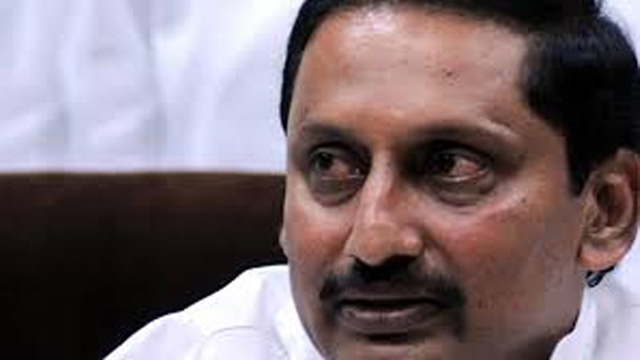Andhra Pradesh Chief Minister N. Kiran Kumar Reddy on Wednesday met Congress general secretary Digvijaya Singh in the national capital amid speculation that the centre is considering the demand for making Hyderabad a union territory.
Andhra Pradesh Chief Minister N. Kiran Kumar Reddy on Wednesday met Congress general secretary Digvijaya Singh in the national capital amid speculation that the centre is considering the demand for making Hyderabad a union territory.
Kiran Reddy, who once again presented his views before the A.K. Antony committee Tuesday night, held talks with Digvijaya Singh, who is also in-charge of party affairs in the state.
He is believed to have Wednesday apprised Digvijaya Singh of the ongoing protests in Seemandhra (Rayalaseema and coastal Andhra) over the party’s decision to carve out a separate Telangana state.
The chief minister, who rushed to Delhi on being summoned by the leadership, Tuesday evening met the four-member Antony committee constituted by the party to address the concerns of Seemandhra following the July 30 decision of the Congress Working Committee (CWC).
Kiran Reddy, who has been openly airing his views opposing the division, also informed Digvijaya Singh that ministers from Seemandhra were insisting that their resignations be accepted.
“The interests of people of Andhra Pradesh who have elected the Congress party twice are paramount in the minds of Congress leadership,” Digvijaya Singh told reporters after the meeting.
On Tuesday, he evaded queries about the demand for union territory status to Hyderabad, saying that the Antony committee would look into all issues.
After the chief minister met the panel, central ministers and MPs of the Congress from Seemandhra also made a power-point presentation.
They said if the division was inevitable, Hyderabad should be made either a union territory or permanent joint capital of the two states.
They brought to the notice of the committee the concerns of Seemandhra people, especially those living in Hyderabad and stressed the need for addressing the issues like distribution of river waters and revenues.
-IANS





